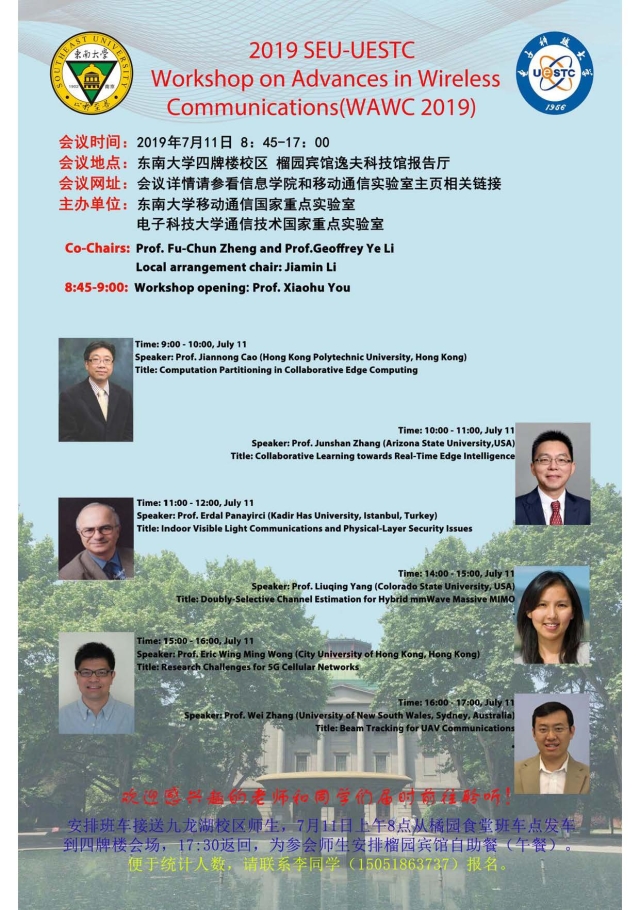| |
| Workshop on Advances in Wireless Communications 2019 (WAWC 2019) | |
Welcome Messages | |
Welcome to Workshop on Advances in Wireless Communications 2019 (WAWC 2019). Date: 08:45 - 17:00 Thursday, July 11, 2019. Location: Conference hall, Yifu Science and Technology Museum, Southeast University, Nanjing, China. Co-Chairs: Prof. Fu-Chun Zheng and Prof. Geoffrey Ye Li; Local arrangement chair: Jiamin Li Workshop opening: 8:45-9:00, Prof. Xiaohu You | |
Conference Agenda | |
08:00 School bus departs from Juyuan canteen to conference hall 08:45 - 09:00 Workshop opening, hosted by Prof. Xiaohu You 09:00 - 12:00 Experts' report 12:00 - 13:30 Buffet dinner at Liuyuan Hotel 14:00 - 17:00 Experts' report 17:30 School bus returns to Juyuan canteen | |
Keynote Speakers This line will not be displayed because COLOR: white | |
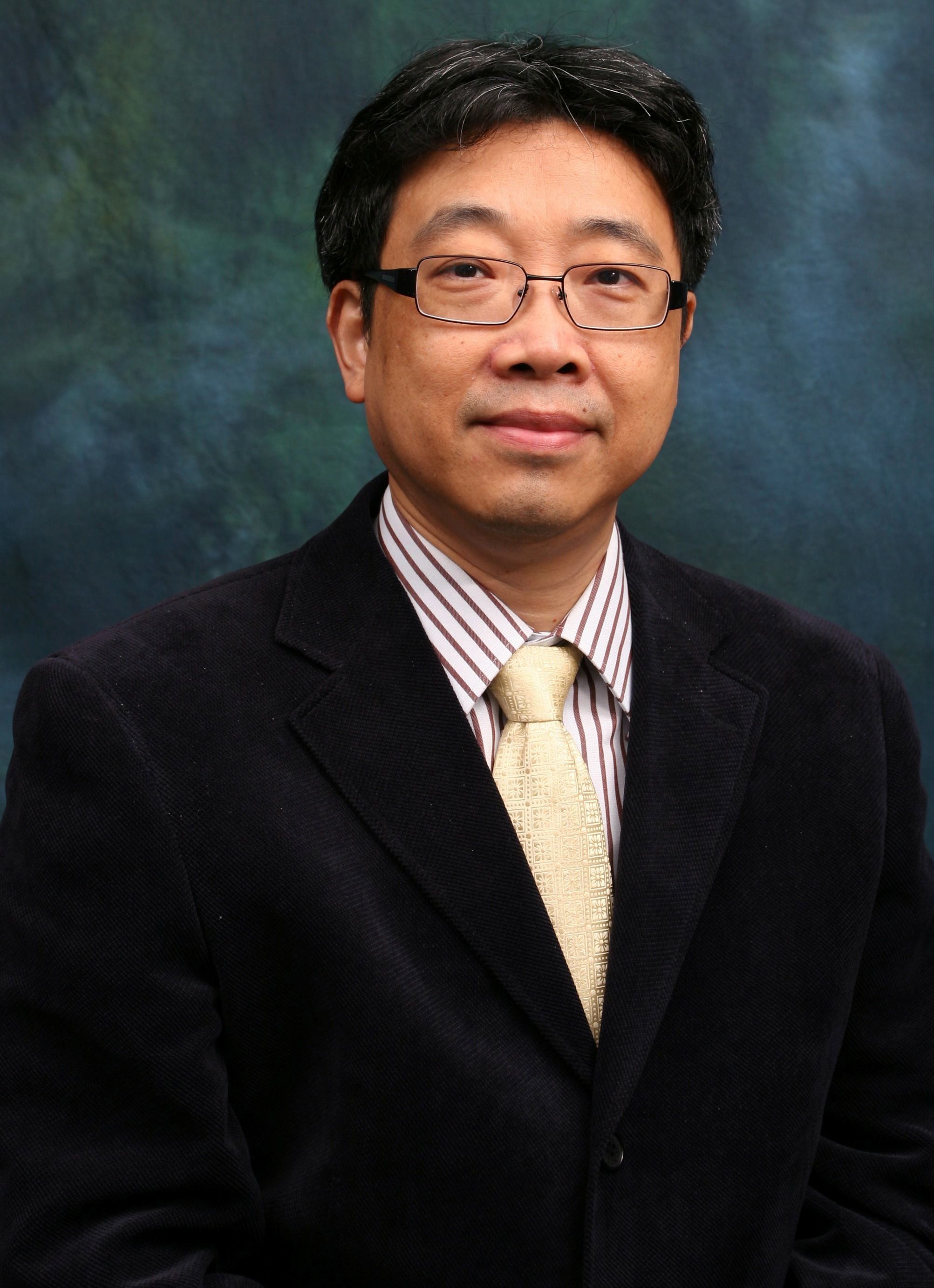 | Time: 9:00 - 10:00, July 11 Speaker: Prof. Jiannong Cao (Hong Kong Polytechnic University) Title: Computation Partitioning in Collaborative Edge Computing Abstract Collaborative Edge Computing (CEC) has emerged as a new paradigm for edge computing where the edge nodes of multiple stakeholders are interconnected and collaborate to facilitate the exchange and share of data and joint task execution. In this talk, I will focus on computation partitioning in CEC, which aims to partition and schedule the application tasks between the edge nodes and end devices in order to achieve high performance. I will first define the system model of CEC and two types of collaborations, i.e., horizontal collaboration and vertical collaboration. Then I will discuss the state-of-arts and the challenges. I will also report our recent related works. Specifically, for horizontal collaboration, I will present a novel approach to partition, schedule, and dispatch the tasks in a 5G enabled CEC environment. For vertical collaboration, I will introduce Cooperative Online Schedule, the method we proposed to jointly schedule the tasks and arising data transmissions in CEC. I will conclude the talk by highlighting some future directions on this topic area. Biography: Dr. Cao is currently a Chair Professor of Department of Computing at The Hong Kong Polytechnic University, Hong Kong. He is also the director of the Internet and Mobile Computing Lab in the department and the director of University's Research Facility in Big Data Analytics. He served the department head from 2011 to 2017. Dr. Cao's research interests include parallel and distributed computing, wireless sensing and networks, pervasive and mobile computing, and big data and cloud computing. He has directed and participated in over 90 research and development projects and, as a principal investigator, obtained over HK$60 million grants from various funding agencies. He published 5 co-authored and 9 co-edited books, and over 500 papers in major international journals and conference proceedings. Dr. Cao served the Chair of the Technical Committee on Distributed Computing of IEEE Computer Society 2012-2014, a member of IEEE Fellows Evaluation Committee of the Computer Society and the Reliability Society, a member of IEEE Computer Society Education Awards Selection Committee, a member of IEEE Communications Society Awards Committee, and a member of Steering Committee of IEEE Transactions on Mobile Computing. Dr. Cao has served as chairs and members of organizing and technical committees of many international conferences, and as associate editor and member of the editorial boards of many international journals. Dr. Cao is a fellow of IEEE and ACM distinguished member. In 2017, he received the Overseas Outstanding Contribution Award from China Computer Federation. Dr. Cao also received Best Paper Awards from journals and conferences including IEEE TII, DSAA'2017, SMARTCOMP 2016, ISPA 2013, and IEEE WCNC 2011. |
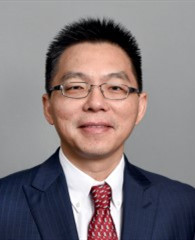 | Time: 10:00 - 11:00, July 11 Speaker: Prof. Junshan Zhang (Arizona State University, USA) Title: Collaborative Learning towards Real-Time Edge Intelligence Abstract The past few years have witnessed the explosive growth of Internet of Things (IoT) devices. Many IoT applications, such as autonomous driving and augmented reality, need intensive computation to accomplish object tracking and intelligent decision in a real-time manner. The necessity of real-time edge intelligence for IoT applications dictates that decision making takes place right here right now at the network edge. Thus motivated, we develop a distributionally robust optimization (DRO) based edge computing framework, aiming to learn the edge model based on local data in real-time, while making use of the trained model in the cloud. Specifically, the knowledge transfer from the cloud to the edge device is in the form of a reference model and its associated uncertainty set, and the edge device further constructs an uncertainty set centered around its local empirical distribution. The edge computing problem is then cast as a DRO problem subject to the two distribution uncertainty sets, and the solution is developed using Optimal Transport Theory. Biography: Junshan Zhang received his Ph.D. degree from the School of ECE at Purdue University in 2000. He joined the School of ECEE at Arizona State University in August 2000, where he has been Fulton Chair Professor since 2015. His research interests fall in the general field of information networks and data science, including communication networks, Internet of Things (IoT), Fog Computing, optimization/control of cyber physical systems, social networks, smart grid. He is a Fellow of the IEEE, and a recipient of the ONR Young Investigator Award in 2005 and the NSF CAREER award in 2003. He received the IEEE Wireless Communication Technical Committee Recognition Award in 2016. His papers have won a few awards, including the Best Student paper at WiOPT 2018, the Kenneth C. Sevcik Outstanding Student Paper Award of ACM SIGMETRICS/IFIP Performance 2016, the Best Paper Runner-up Award of IEEE INFOCOM 2009 and IEEE INFOCOM 2014, and the Best Paper Award at IEEE ICC 2008 and ICC 2017. Building on his research findings, he co-founded Smartiply Inc in 2015, a Fog Computing startup company delivering boosted network connectivity and embedded artificial intelligence. Prof. Zhang was TPC co-chair for a few major conferences in communication networks, including IEEE INFOCOM 2012 and ACM MOBIHOC 2015. He was general chair for ACM/IEEE SEC 2017 and WiOPT 2016. He is currently serving as Editor-in-chief of IEEE Transactions on Wireless Communications and senior editor for IEEE/ACM Transactions on Networking. |
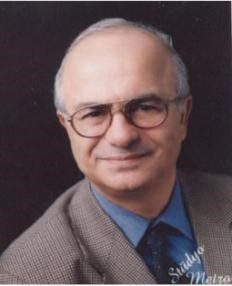 | Time: 11:00 - 12:00, July 11 Speaker: Prof. Erdal Panayirci (Kadir Has University, Istanbul, Turkey) Title: Indoor Visible Light Communications and Physical-Layer Security Issues Abstract Optical Wireless Communications (OWC) and one of its potential applications, Visible Light Comunications (VLC) offer significant technical and operational advantages. With attractive features such as high bandwidth capacity, robustness to electromagnetic interference, high degree of spatial confinement, inherent security and unregulated spectrum, OWC as well as VLC stand out as powerful alternatives and/or complementary technologies to the existing radio frequency (RF) based wireless systems for a wide range of applications. During the past few years, physical-layer security in point-to-point and multiuser VLC network has emerged as a promising approach to complement conventional encryption techniques and provide a first line of defense against eavesdropping attacks. Physical-layer security refers to techniques that exploits channel characteristics in order to hide information from unauthorized receivers, without dependence on upper-layer encryption. Due to its broadcast nature, VLC channels are inherently susceptible to eavesdropping by unintended or unauthorized users who have access to the physical area illuminated by the data transmitters. In this presentation, after a short introduction on VLC, we overview state-of-art techniques employed for physical layer security in VLC systems and introduce two new and novel schemes for VLC physical layer security, based on optical-space-shift-keying (OSSK) modulation and a non-orthogonal multiple access (NOMA) based relay-aided secure broadcasting. In addition, we elaborate a unified information-theoretical framework, relying on the accuracy of the channel estimators, to determine the achievable secrecy capacity and secrecy rate of the proposed schemes. Biography: Erdal Panayirci (IEEE Fellow) received the Diploma Engineering degree in Electrical Engineering from Istanbul Technical University, Istanbul, Turkey and the Ph.D. degree in Electrical Engineering and System Science from Michigan State University, USA. Until 1998 he has been with the Faculty of Electrical and Electronics Engineering at the Istanbul Technical University, where he was a Professor and Head of the Telecommunications Chair. Currently, he is Professor of Electrical Engineering and Head of the Electronics Engineering Department at Kadir Has University, Istanbul, Turkey. Dr. Panayirci's recent research interests include communication theory, synchronization, advanced signal processing techniques and their applications to RF, underwater and optical wireless communications. He has published extensively in leading scientific journals and international conference and co-authored the book Principles of Integrated Maritime Surveillance Systems (Boston, Kluwer Academic Publishers, 2000). Dr. Panayirci spent the academic years 2008-2009 and 2017-2018 at the Department of Electrical Engineering, Princeton University, New Jersey, USA, working on new channel estimation and equalization algorithms for high mobility WIMAX and LTE systems as well as on the physical layer security in visible light communications. He has been the principal coordinator of a 6th and 7th Frame European project called NEWCOM (Network of Excellent on Wireless Communications) and WIMAGIC Strep project for two years, representing Kadir Has University. Prof. Panayirci was an Editor for IEEE Transactions on Communications in the areas of Synchronizations and Equalizations in 1995-2000. He served as a Member of IEEE Fellow Committee in 2005-2008 and currently, he is serving second time as a Member of IEEE Fellow Committee. He is also a Member of GLOBECOM/ICC Management & Strategy (GIMS) Standing Committee and a Member of WCNC Steering Committee. He was the Technical Program Co-Chair of the IEEE International Conference on Communications (ICC-2006) and the Technical Program Chair of the IEEE PIMRC held in Istanbul, Turkey both held in Istanbul in 2006 and 2010, respectively. He was the Executive Vice Chairman of the IEEE Wireless Communications and Networking Conference (WCNC) held in Istanbul in April 2014 and he is a General-Co-Chair of the IEEE PIMRC to be held in Istanbul, Turkey in September 8-13, 2019. |
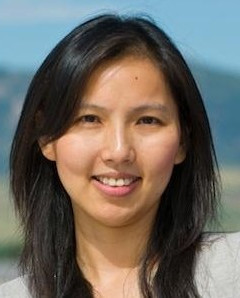 | Time: 14:00 - 15:00, July 11 Speaker: Prof. Liuqing Yang (Colorado State University, USA) Title: Doubly-Selective Channel Estimation for Hybrid mmWave Massive MIMO Abstract With the unprecedented data rate promises, inherent compatibility with massive MIMO (mMIMO), and FCC authorization underway, mmWave mMIMO has attracted increasing research and development efforts. However, nearly all of these focused on static scenarios, thus excluding mmWave mMIMO deployment in numerous applications on the move, including autonomous driving, HD live streaming, pervasive information showers, and terrestrial-satellite cooperation. This is because the mobility-induced wideband Doppler is not only a challenging problem on its own, but also adds formidable complications to other unprecedented difficulties unique to mmWave mMIMO such as frequency-selectivity with long delay spread due to the Ghz bandwidth, high-dimensionality due to mMIMO, and very few RF chains due to hybrid transceivers. In order to unleash the potential of hybrid mmWave mMIMO for mobile applications, we tackle the doubly-selective channel estimation problem therein. Although this is the very foundation for hybrid mmWave mMIMO system design, there is no reported solution for this to date. In this talk, we will introduce a doubly-selective (DS) channel estimator for hybrid mmWave mmMIMO via innovative exploitation of the double (beamspace and delay-domain) sparsity (DS). Simulations demonstrate that our DS2 estimator achieves ~100% estimation accuracy improvement with 1000-fold storage reduction and 90% computation reduction. Biography: Dr. Liuqing Yang (IEEE Fellow) received her Ph.D. degree in Electrical and Computer Engineering from the University of Minnesota, Minneapolis, in 2004. She is presently a Professor with Colorado State University. Her general interests are in signal processing with applications to communications, networking and power systems - subjects on which she has published more than 310 journal and conference papers, 4 book chapters and 5 books. Dr. Yang became an IEEE Fellow in 2015. She was the recipient of the ONR Young Investigator Program (YIP) award in 2007, and the NSF Faculty Early Career Development (CAREER) award in 2009, the Best Paper Award at the IEEE ICUWB'06, ICCC'13, ITSC'14, Globecom'14, ICC'16, and WCSP'16, Globecom'18 and ICCS'18. She is the editor in chief for IET Communications, and has served as associate/senior editor for IEEE Transactions on Communications, IEEE Transactions on Wireless Communications, IEEE Transactions on Signal Processing, IEEE Transactions on Intelligent Transportation Systems, IEEE Intelligent Systems, and PHYCOM: Physical Communication, as the Editor in Chief for IET Communications, and as program chair, track/symposium or TPC chair for many conferences. |
 | Time: 15:00 - 16:00, July 11 Speaker: Prof. Eric Wing Ming Wong (City University of Hong Kong) Title: Research Challenges for 5G Cellular Networks Abstract Many cities in the world, including Hong Kong, are launching 5G mobile services. Of particular interest are the mmWave bands, which can provide data rates of tens of Gbps due to the employment of advanced networking and communication technology. However, 5G mmWave research is still in its infancy and there are many practical challenges to be addressed before any of the promised benefits can be obtained. Questions that need to be addressed include resource allocation to deal with limited high-frequency channel propagation and high mobility, and energy saving for reducing the huge energy consumption of 5G operation. Drawing upon his experience on the related field, including two recent projects supported by the Hong Kong Innovation and Technology Fund, the speaker will present some research challenges and possible solutions for deploying and operating 5G cellular networks. Biography: Dr. Eric Wong has more than twenty years of research experience in the analysis, design and optimization of telecommunications networks, including mobile cellular networks, and the development of accurate and computationally efficient analytical methods for performance evaluation in those networks. One important example is his pioneering work on the Erlang fixed-point approximation (EFPA) for the analysis and design of circuit-switched networks that use dynamic routing. This work has supported a major network evolution implemented by AT&T in the US national telephone network. This includes the first workable analytical method for performance evaluation of state-dependent dynamic routing. The analytical method has significantly reduced the computational effort required and since 1991 has been being used by AT&T to design, dimension and optimize its telephone network that uses Real Time Network Routing (RTNR). Dr. Eric Wong is now an Associate Professor in the Electrical Engineering Department of City University of Hong Kong. His research interests include analysis and design of telecommunications and computer networks, energy-efficient data center design, green cellular networks and optical switching. Recently, Dr. Wong carried out two research projects, supported by the Hong Kong Innovation and Technology Fund, and has been working collaboratively with SmarTone Mobile Communications Ltd, a leading mobile network operator in Hong Kong. One is to develop tools to reduce cellular networks' electricity cost and save energy consumption by switching under-utilized base stations to sleep mode during non-busy hours while the other is to develop novel technologies for 5G base-station deployment. |
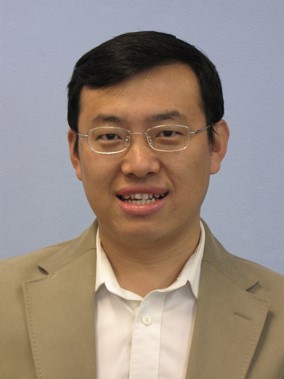 | Time: 16:00 - 17:00, July 11 Speaker: Prof. Wei Zhang (University of New South Wales, Sydney, Australia) Title: Beam Tracking for UAV Communications Abstract Beam tracking for unmanned aerial vehicle (UAV) communications is an enabling technology that maintains the connection between UAV and ground base stations. In this talk, we propose an efficient training-based beam tracking scheme for UAV system. To track the beam, we need to answer how frequently the training should be performed. The proposed scheme uses joint beam training and angular velocity estimation, based on which the beam coherence time can be obtained. Accordingly, the training frequency can be adjusted based on the variation of beam coherence time. Then, we study the maximization of flying range and speed of UAV. To this end, we optimise the beamwidth by varying levels of hierarchical codebook. For flying range maximization, we first propose an efficient algorithm that can obtain the optimal beamwidth and the corresponding maximal flying range at a given speed of UAV. To gain more insight, we show that in most practical scenarios, the maximal flying range can be achieved with the narrow beam. Furthermore, we show that when the flying range is small, wide beam should be used to support high speed of UAV, and vice versa. Biography: Wei Zhang (F'15) is a Professor at University of New South Wales, Sydney, Australia. His current research interests include UAV communications, mmWave communications, space information networks, and massive MIMO. Currently, he serves as a TPC Co-Chair of ICCC 2019, Changchun, China. He is the Editor-in-Chief of IEEE Wireless Communications Letters and Editor-in-Chief of Journal of Communications and Information Networks (JCIN). He also serves as Chair for IEEE Wireless Communications Technical Committee and Vice Director of IEEE Communications Society Asia Pacific Board. He is a member of Board of Governors of IEEE Communications Society. He is a member of IEEE Fellow Evaluation Committee of IEEE VTS. |
Conference Poster | |
| |
History | |
WAWC 2018:https://ncrl.seu.edu.cn/2018/0706/c15598a232056/page.htm WAWC 2017:https://ncrl.seu.edu.cn/2017/0417/c15598a189006/page.htm WAWC 2015:http://ncrl.seu.edu.cn/misc/WAWC2015/ WAWC 2014:http://ncrl.seu.edu.cn/misc/WAWC2014/ WAWC 2013:http://ncrl.seu.edu.cn/misc/WAWC2013/ WAWC 2012:http://ncrl.seu.edu.cn/misc/WAWC2012/ | |
| Copyright © WAWC2019. All Rights Reserved. | |


